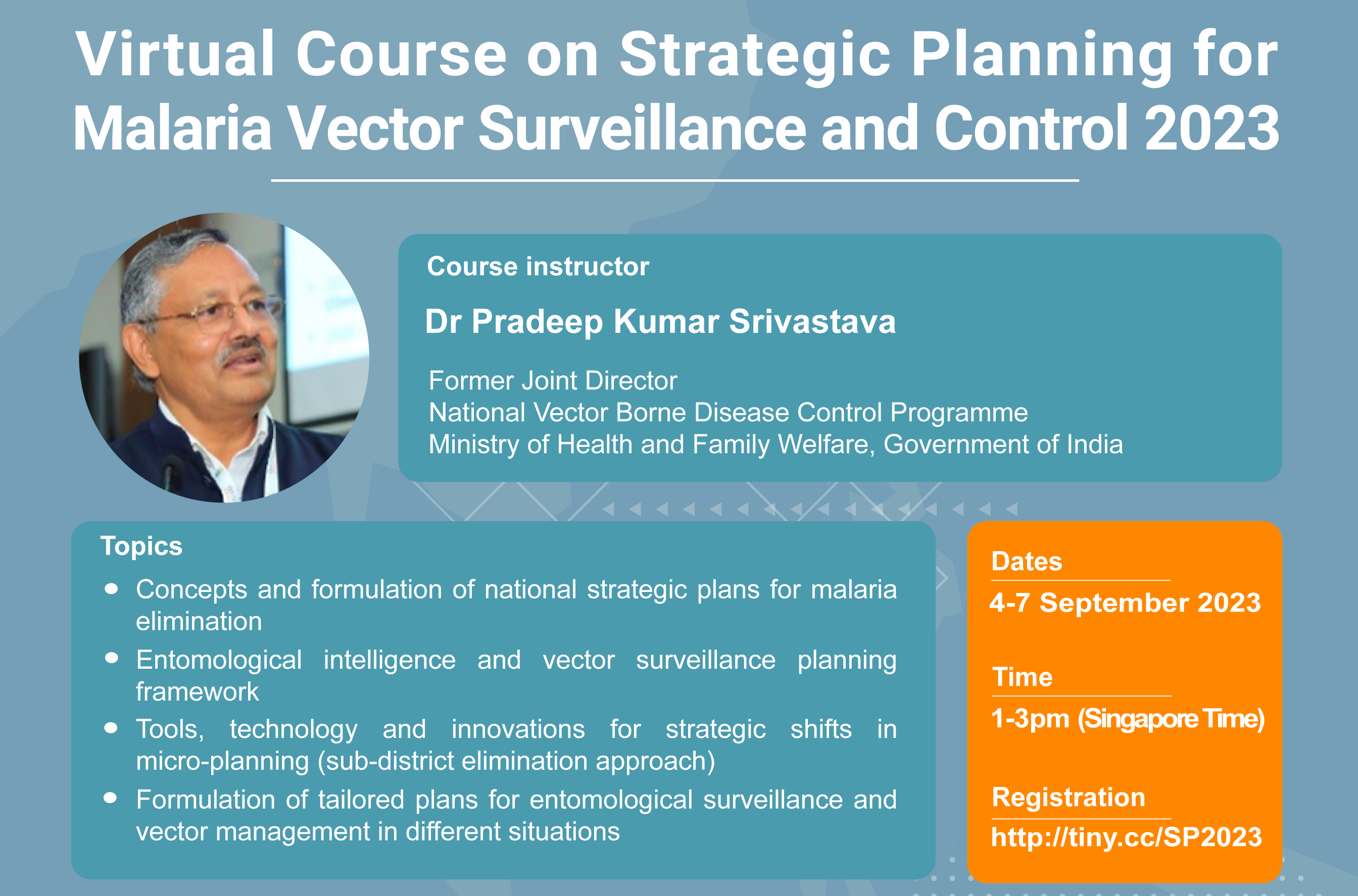
Malaria, a persistent global health challenge for over a century, has been combated with various strategies. However, one strategy has stood as the most effective: vector control. In 2021 and 2022, the APMEN Vector Control Annual Conferences hosted sessions on Needs Assessment among National Malaria Programmes (NMP), aiming to identify areas where NMPs required skill development to enhance their malaria control and elimination efforts. Among the training shortfalls of NMPs, Strategic Planning emerged as one of the top six priorities.
To address this need, a visionary decision was made to engage the expertise of Dr. Pradeep Srivastava, a retired director-level vector control specialist form the National Vector Borne Disease Control Programme in India. He was responsible for developing Strategic Plans to combat a range of vector-borne diseases, including malaria. In August 2022, Dr. Pradeep facilitated a comprehensive four-day course on strategic planning for malaria vector surveillance and control. The course gained strong commendation, with a remarkable attendance and countless requests for its repetition in 2023. Such enthusiasm for the course was an indication of Dr. Srivastava's effective and engaging teaching methodology and expertise.
In response to the overwhelming demand, the course returned from September 4th to 7th, 2023. Dr. Pradeep once again facilitated, bringing his wealth of knowledge and experience to participants. During the four-day course in 2023, the virtual course covered four crucial themes:
- Day 1: Concepts and Formulation of Plan
- Day 2: Entomological Intelligence and Vector Surveillance Planning Framework
- Day 3: Tools, Technology, and Innovations in Microplanning
- Day 4: Formulation of a Tailored Plan for Entomological Surveillance & Vector Management in different situations
The course was a great success, with 342 registrations from 35 countries. Among them, 236 individuals from 29 countries actively participated in the training. The energetic audience interaction, through Q&A sessions and live discussions, created a rich learning environment. Feedback from participants showed a high level of satisfaction, with 82% of respondents rating their experience as 'very satisfied,' and the remaining 18% indicating 'more than satisfied.'
To conclude, the virtual Strategic Planning for Malaria Vector Surveillance and Control course have participated by senior level and experience NMP staff who are involving the development of policy and operational guidelines. The overwhelming positive feedback from participants underscores the course's value and Dr. Srivastava's expertise. Hence, this strategic training for vector surveillance and control helps to strengthen the capacity of NMPs to combat malaria effectively, bringing us closer to a malaria free Asia Pacific region.
Watch the recordings in ORENE.
